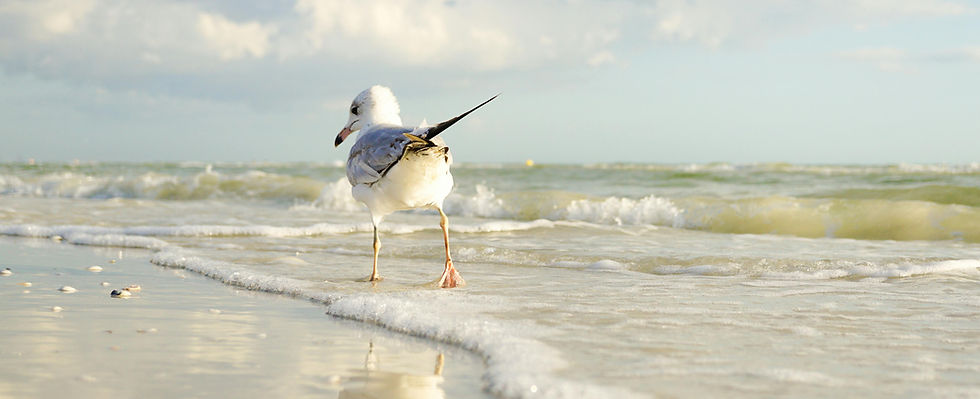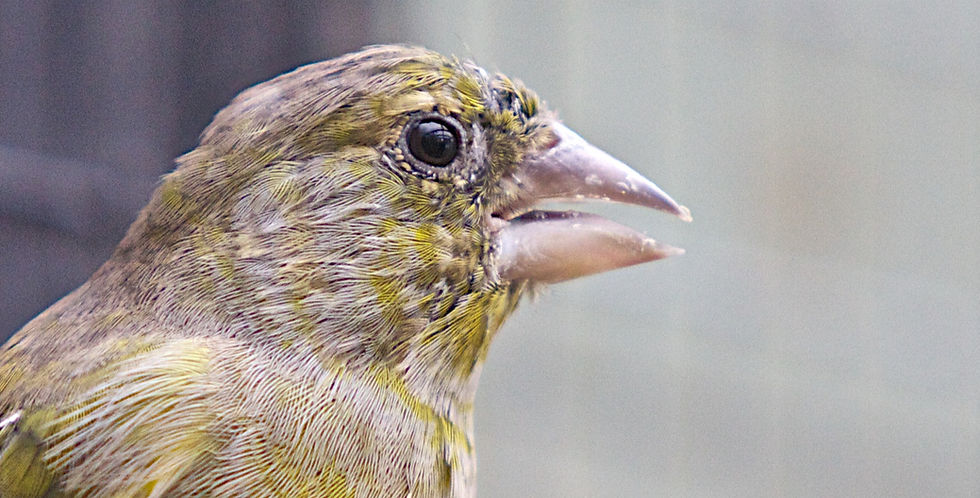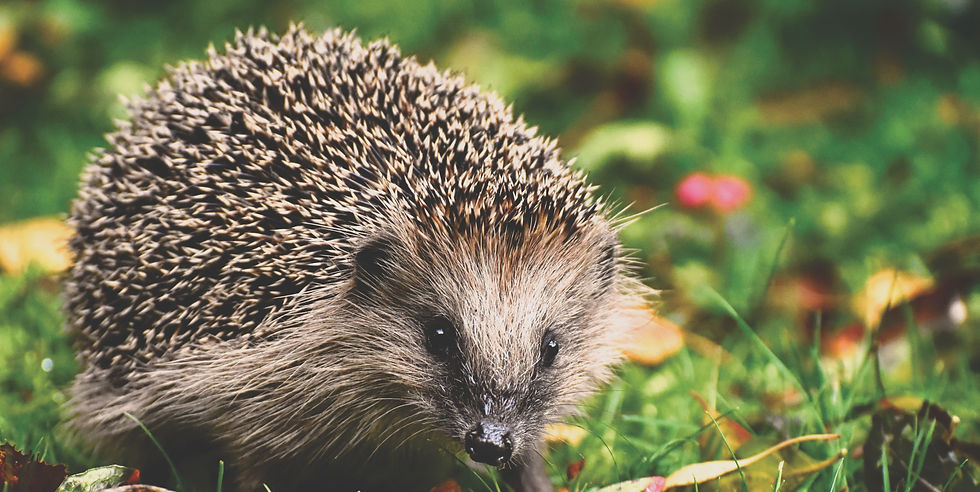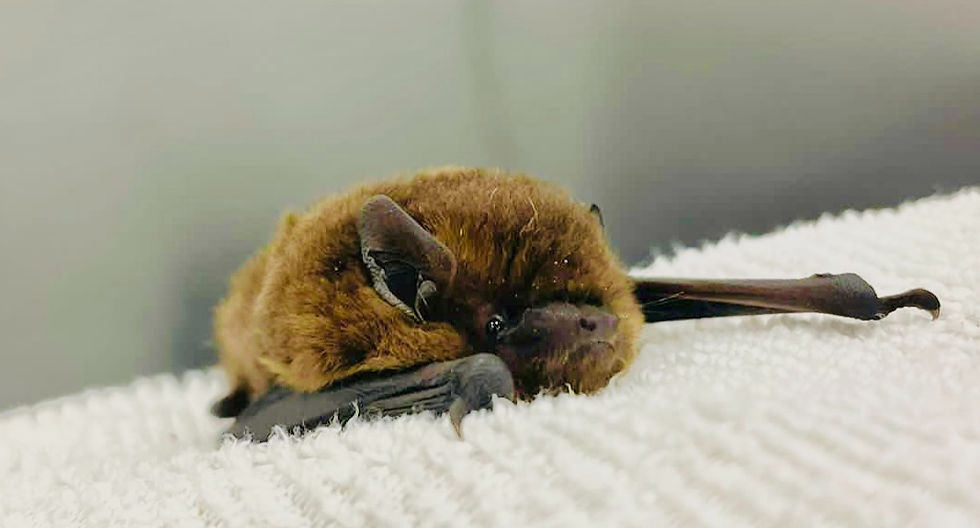How to Support Wildlife in Hot Weather
- Asha Park

- Jul 6, 2024
- 5 min read

As summer settles in and temperatures soar, wildlife across the UK faces a challenging season. At Brent Lodge Wildlife Hospital, we're acutely aware of the struggles our native animals endure during these hot months. From dehydration to habitat disruption, the effects of prolonged heatwaves can be devastating. Here, we explore the specific challenges faced by our precious UK wildlife, and how we can all contribute to their well-being.
The Heat is On: Challenges for Wildlife
FOXES
Foxes are adaptable creatures, but extreme heat can push them to their limits. In urban areas, they often venture closer to homes in search of water and shade. However, this increases their risk of accidents and conflicts with humans. Dehydration and heatstroke are significant concerns, especially for young kits who are less capable of regulating their body temperature.
PIGEONS
Pigeons might be ubiquitous in our cities, but they too suffer in the heat. High temperatures can lead to dehydration, which affects their ability to fly and forage for food. Nesting birds are particularly vulnerable as the heat can dry out their nesting materials, making it harder to keep their eggs and chicks cool.
WATER BIRDS
Swans, geese and ducks often seen gracefully gliding across our lakes and rivers, face a different set of challenges. Diminished water levels during hot weather can reduce their feeding grounds and expose them to predators. Additionally, stagnant water can lead to algae blooms, which are harmful if ingested and can deplete oxygen levels, further stressing aquatic life.
HEDGEHOGS
Hedgehogs, beloved by many, are nocturnal animals that can struggle to find food and water during dry spells. Insects, their primary food source, become scarce, and the heat can dry out their natural water sources. This forces hedgehogs to venture further afield, sometimes leading them into dangerous areas like roads.

GARDEN BIRDS
Despite not being able to sweat, birds still lose a lot of water in hot weather in their droppings and through respiration. Combine this with their water sources drying up, and they struggle to rehydrate and keep their feathers in top condition.
Gulls
Gulls have adapted to nest on roof tops but prolonged exposure to the sun during extreme hot weather can lead to dehydration and heat stress, particularly for exposed or fallen chicks. With natural water sources drying up, adult or fledgling gulls may scavenge in urban areas, increasing their risk of ingesting harmful substances or getting entangled in litter. By providing fresh water sources and ensuring our waste is properly disposed of, we can help these resilient birds cope with the demands of summer and maintain their health and well-being.

INSECTS AND POLLINATORS
Like other animals insects also struggle during hot weather. Many wild animals feed on insects in your garden so it is hugely beneficial to wildlife to help keep insects supported during extreme hot weather. This support system will then work its way up the ecosystem.
To support insects consider creating insect-friendly habitats in your garden. Plant a variety of native flowering plants that bloom at different times to provide a consistent food source. Include plants like lavender, wildflowers, and herbs, which are particularly attractive to pollinators. Providing shallow dishes of water with stones or pebbles allows insects to drink without the risk of drowning.
Avoid using pesticides and chemicals in your garden, as these can be harmful to beneficial insects. Instead, opt for natural pest control methods, such as encouraging predator species like ladybirds and spiders. Leaving small areas of your garden untidy with logs, leaves, and compost piles can offer essential shelter and breeding grounds for insects.
By fostering a diverse and insect-friendly environment, we not only help these vital creatures survive the hot weather but also support the overall health and balance of our ecosystems. Small actions can make a big difference in ensuring that insects continue to thrive and perform their critical roles in nature.

How You Can Help Wildlife
Provide Water
One of the simplest yet most effective ways to help wildlife during hot weather is to provide water. Place shallow bowls of water in your garden or balcony. Ensure they are topped up regularly and placed in shaded areas to keep the water cool. Remember to add a few stones or sticks to allow smaller animals and insects to drink safely.
Create Shelter
Offer shelter by leaving areas of your garden wild. Piles of logs, rocks, or even a simple patch of long grass can provide much-needed shade and hiding spots. Hedgehogs, in particular, will appreciate a cool, shady refuge during the heat of the day.
Feed Responsibly
Supplementing the diets of local wildlife can be a big help, but it's important to do so responsibly. Leave out suitable food like cat or dog food for hedgehogs, and seeds and grains for birds. Avoid bread, as it provides little nutritional value and can harm aquatic birds like swans. Do not stop feeding. Most wild animals rely on a particular food source, so it is vital that you continue to provide regular supplementary food.
Garden Wisely
Consider planting native, drought-resistant plants that can provide food and habitat for insects, which in turn support other wildlife. Avoid using pesticides, as these can harm beneficial insects and the animals that feed on them.
Be Mindful of Water Bodies
If you live near a pond or river, keep an eye out for signs of distress in aquatic life. Algae blooms and reduced water levels can indicate trouble. If safe to do so, you can carefully remove algae and ensure there are access points for animals to drink safely.
Educate and Advocate
Spread the word and share this blog about the challenges wildlife faces during hot weather. Encourage your community to adopt wildlife-friendly practices. The more people involved, the greater the positive impact on our local ecosystems.
Help wildlife casualties
If you do find a wildlife animal struggling in the heat it is important that you find professional help for them as soon as possible. Call Brent Lodge or your local wildlife rescue for advice. Sick or injured wild animals need expert care, so please do not be tempted to care for casualties yourself with asking for advice or guidance.

As temperatures rise, our wildlife needs a helping hand to navigate the challenges of hot weather. By providing water, shelter, and food, and by adopting mindful gardening practices, we can make a significant difference. At Brent Lodge Wildlife Hospital, we're committed to supporting our native animals through every season, and with your help, we can ensure that they not only survive but thrive during the summer months.
Together, let's make this summer a little easier for our wildlife friends. Every small action counts, and with collective effort, we can create a safer, more hospitable environment for the creatures that share our world.
By Asha Park




Comments